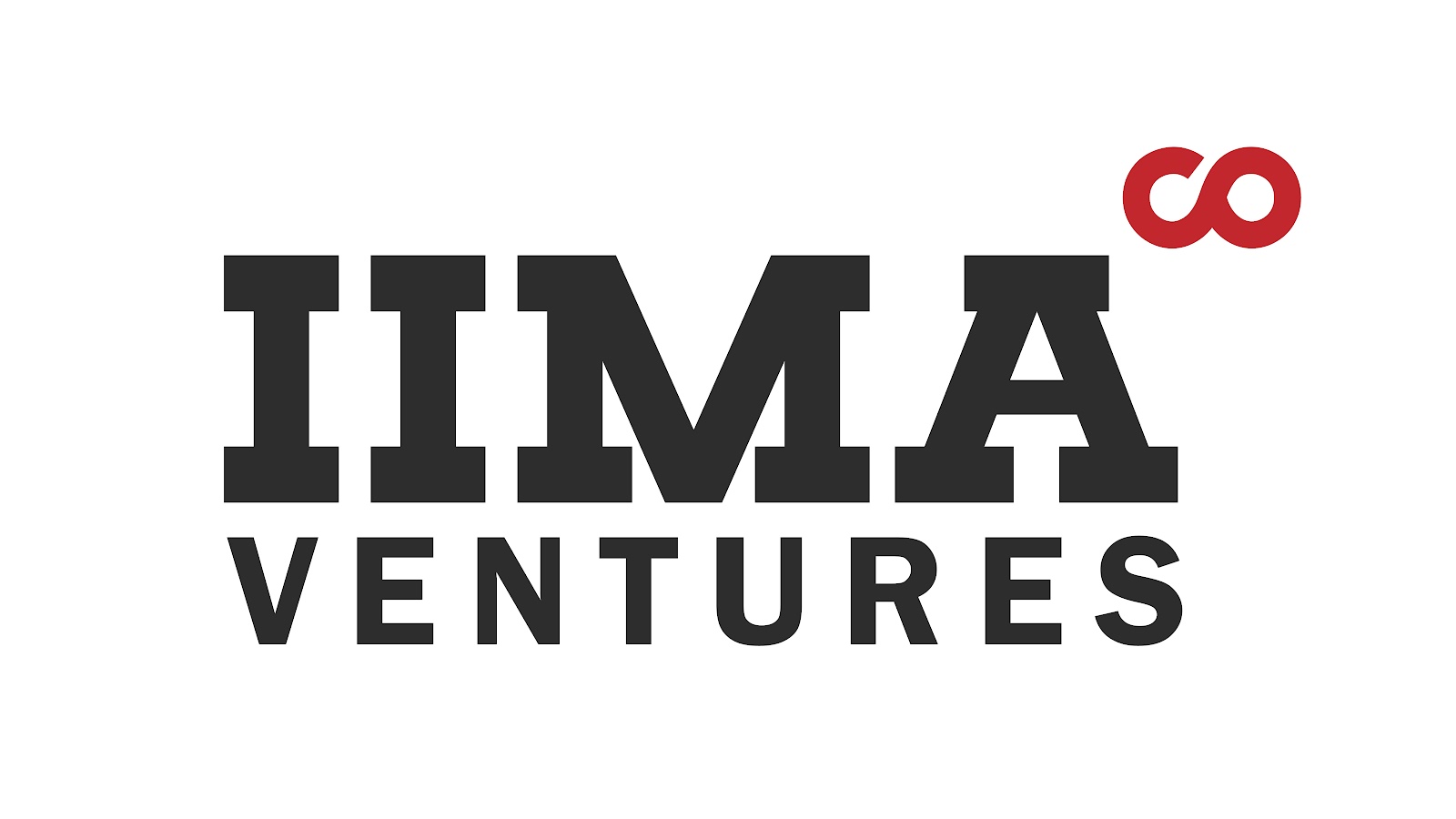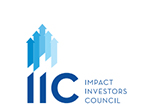|
Capital Provider Showcase
Dialogue with Priyanka Chopra, CEO & Managing Partner at IIMA Ventures
|
|

1 How has IIMA Ventures’ shaped its investment thesis around deep technology in Indian Context? Within the broad spectrum of sectors - climate, health tech, next gen mobility, semiconductors, and space innovations - which ones do you believe are entering an inflection point for scalable, long-term value creation and why?
|
At IIMA Ventures, our investment thesis is rooted in India’s natural advantages—a strong talent base, rich and complex datasets, relatively lower-cost R&D, growing deeptech startup ecosystem, and strong policy push—along with the evolving geopolitical scenario, unique socio-economic context, and the nation’s long-term strategic priorities. Through our work at IIMA Ventures, we are privileged to have a ringside view of this generational transformation, and take pride in backing startups on their 0-to-1 journey by de-risking this critical phase.
With over two decades of experience enabling early-stage deeptech startups, we believe that it's not just individual sectors, but the entire deeptech ecosystem in India, that is at a pivotal inflection point.
Climate: Despite recent global challenges, India’s climate opportunity remains strong, with promising areas in energy transition, green materials, energy storage, industrial decarbonization, mobility, and precision agriculture. Take Vimano from our portfolio for example - its advanced nanotech membrane innovations are redefining energy storage and conversion.
Healthtech: Innovation and adoption of digital therapeutics and diagnostics—such as AI pathology and rapid testing—are growing, especially post-COVID. A case-in-point is Ivory, a portfolio company reimagining healthy ageing through evidence-based digital interventions.
Next-gen Mobility: India’s vast transportation market is driving a booming startup ecosystem in charging infrastructure, fleet electrification, aerial transport, and more. An example from our portfolio is e‑TRNL Energy, which is developing next‑generation battery cells in India.
Semiconductors: Geopolitical shifts, supply chain realignments, and policy support are creating a rare opportunity for India’s semiconductor industry. Startups like Morphing Machines, an Indian fabless semiconductor startup from our portfolio specializing in reconfigurable many-core processors, exemplify the kind of innovation emerging from this momentum.
Spacetech: We were early believers in India’s spacetech story. With government-driven privatization, space technology is becoming widely accessible. The first decade focused on building robust infrastructure—from launch vehicles to payloads—paving the way for entrepreneurs to indigenize space tech, innovate with new materials,
develop an in-orbit economy, and explore deep space. Two examples from our portfolio come to mind: Agnikul, which has developed customizable launch vehicles for small satellites using 3D-printed rocket engines, belonged to the first wave of infrastructure-focused startups. Building on that foundation to deliver advanced applications, companies such as Piersight represent the next wave - leveraging indigenous radar imaging satellites to provide real-time, all-weather maritime monitoring. These innovations reflect the growing maturity and impact potential of India’s spacetech ecosystem.
|
2
Deeptech innovation has traditionally evolved in and served high-income ecosystems. How is IIMA Ventures enabling startups to design deeptech solutions that are accessible, affordable and contextually relevant to India’s underserved especially in underserved rural or informal economies? What barriers do you see and how are they being addressed through your capital or ecosystem strategies?
|
Deeptech innovation is often concentrated in high-income ecosystems, leaving underserved rural and informal economies on the margins, despite their significant potential for impact. As IIMA Ventures, our mission is to bridge this gap by enabling startups to design and deliver deeptech solutions that are not only cutting-edge but also accessible, affordable, and deeply relevant to India’s unique socio-economic context. We focus on startups that are transforming consequential sectors—healthcare, mobility, agriculture, fintech, spacetech, climate resilience, and adaptation—sectors that fundamentally impact the underserved at scale. By addressing challenges in these domains, we help ensure that innovation reaches those who need it most.
Some notable examples include Nabh Drishti, which is building indigenously industrialized clean-fuel-based small and micro gas turbine engines; Bellatrix Aerospace, developing electric and green propulsion systems along with orbital transfer vehicles; Dreamfly Innovations, working on long-endurance battery systems for surveillance drones and 5C Network, a pioneer in AI-driven diagnostic services that has partnered with NVIDIA to transform Indian healthcare. By supporting such innovations, we aim to ensure that deeptech reaches those who need it most.
However, we must recognise that building deeptech startups focused on the underserved sectors requires deliberate and persistent work. We do this through four strategic levers:
Catalytic Capital: We provide crucial pre-seed and seed-stage funding through a combination of grants and equity. Beyond capital, we leverage our extensive network to help startups raise follow-on investment, reducing early-stage financial friction.
Coaching: We offer intensive, structured, problem-solving-oriented mentorship designed to accelerate the development of fit-for-purpose innovations that can scale effectively.
Connects for Market Access: Recognizing the importance of early customer validation, we facilitate direct connections that enable startups to pilot solutions and gain real-world feedback—refining product-market fit more efficiently.
Community Building: We nurture a vibrant ecosystem by fostering meaningful learning and collaboration across our large startup community, creating synergies that drive collective growth and impact.
Through these four levers - capital, coaching, connections, and community - we unlock startup scale and long-term impact.
|
3
Deep technology ventures are often seen from the lens of Technological Novelty or IP intensity and operate with longer gestation cycles and require patient capital. From your experience at IIMA Ventures, do you see deeptech as inherently impactful — and if so, in what ways do these startups either by design or diffusion deliver or enable meaningful social or environmental outcomes, directly or indirectly?
|
Deeptech solutions—through fundamental scientific and engineering breakthroughs—often transform entire industries and create new markets. At IIMA Ventures, we believe deeptech startups can drive impact, whether by design or through diffusion. Our portfolio demonstrates both: from solutions built with an explicit impact intent, to technologies that create wide-reaching second-order effects. Here are a few examples:
IOTA Diagnostic, is an example of impact by design. Their product is an affordable, non-invasive, highly accessible, and accurate AI-based diagnostic platform that is reimagining early-stage disease detection and transforming primary healthcare, especially in underserved areas, where timely diagnosis can mean the difference between chronic illness and cure. In another case, Navana.ai, builds high-performance speech recognition APIs tailored for Indian languages and contexts. By designing for low-literacy, non-English-speaking users, Navana is intentionally bridging digital and financial access gaps. Impact isn’t incidental, it’s embedded in their core product and market choices.
An example of impact by diffusion from our deeptech portfolio is Ideaforge, India’s leading drone-tech company. Originally developed for defence and industrial applications, Ideaforge’s technology has enabled improvements in areas such as infrastructure monitoring, agriculture, disaster management, and public safety. While the startup wasn’t initially built with a social mission at the core, its widespread adoption has led to second-order effects that positively impact governance, rural access, and environmental resilience - making it a strong case of impact by diffusion.
In all three cases, deeptech is catalysing equitable access, better outcomes for all, and scalable inclusion, whether by explicit intent or as a natural by-product.
|
4
From your perspective, what are the most promising deeptech domains (e.g., AI/ML, biotech, advanced materials, robotics, quantum computing) that hold the greatest potential for creating significant social and environmental impact in India? Could you highlight some recent significant investments or developments that led to the earlier projection?
|
We have been bullish on deeptech for several years now. We are quite optimistic about biotechnology, advanced materials, robotics, and AI driving inclusive growth and addressing India’s most pressing social and environmental challenges.
We have supported several promising ventures in this space. For example, Chara Technologies is building rare-earth-free motors, reducing reliance on critical minerals. Cancrie is converting waste into high-performance nano carbon for use in battery and energy storage systems. TraceX Technologies has developed a blockchain-powered, data-driven platform that enables digitization, transparency, and compliance in fragmented supply chains, helping enterprise customers align with climate targets and Sustainable Development Goals.
|
5
Traditional impact measurement tools often fall short in capturing the indirect or long-horizon effects of deeptech. Is there a need to develop new frameworks—perhaps akin to scope-based models in emissions accounting—that map value creation across different levels of tech spillover or systemic adoption? How are you, as investors, adapting to this challenge?
|
As deeptech solutions increasingly intersect with developmental goals, we believe traditional impact measurement tools often fall short in capturing the second-order or long-horizon effects these innovations create. That’s why we advocate for tailored impact pathways, bespoke frameworks that reflect each startup’s unique technology, context, and potential for transformation.
At IIMA Ventures, we support our portfolio companies to define and track both quantitative and qualitative outcomes. Quantitative metrics might include cost reductions, increases in user reach, energy efficiency improvements, or time saved. Qualitative metrics, on the other hand, help capture more systemic and behavioral shifts such as changes in decision-making patterns, digital adoption, or improvements in service delivery.
We recognise the need for sector-wide frameworks that can help categorize direct, value chain, and ecosystem-level impact spillovers. These models could guide investors and entrepreneurs in identifying where their innovation exerts influence—whether through intended outcomes or unexpected, diffused effects.
Ultimately, we see data not just as a reporting tool, but as a strategic asset to inform iteration, unlock capital, and drive accountability. By embedding impact thinking early and building the capacity to measure what matters, we aim to ensure that deeptech innovation delivers meaningful, measurable change on the ground.
|
6
Looking ahead as the deeptech ecosystem in India matures, do you see a growing convergence between frontier innovation and social outcomes/developmental goals being more intentional? How do you see IIMA Ventures positioning itself - beyond capital, as an ecosystem enabler, or thought leader - to accelerate deeptech ventures that can ensure that deeptech is not just cutting edge but also purpose driven?
|
Absolutely! We are seeing a clear and encouraging shift where frontier innovation is increasingly aligned with India’s developmental priorities. Policy is moving in this direction, and more founders are intentionally solving for India-first challenges.
At IIMA Ventures, our role goes well beyond capital. We have built large, multipronged, thematic platforms in areas such as digital inclusion, climate tech, and deeptech, bringing together catalytic capital to support experimentation, bespoke coaching, test-bed access, policy engagement, and blended finance models to accelerate scale. We act as ecosystem catalysts by enabling market access, facilitating collaborations, and creating structured pathways for scale. As thought partners, we invest in research, produce public knowledge outputs, convene stakeholders, and foster dialogue to spotlight gaps and opportunities. Additionally, we actively support and incubate enablers - whether startups, funds, or incubators - to strengthen the broader ecosystem.
Our aim is to ensure that deeptech in India is not only cutting-edge but also purpose-driven, scalable, and inclusive.
|
|
|

Priyanka Chopra - CEO & Managing Partner at IIMA Ventures
Priyanka Chopra is the CEO and Managing Partner at IIMA Ventures and a Venture Partner at the Bharat Innovation Fund. She brings over 12 years of experience in investing, advising, and supporting early-stage startups, and has served on the Venture Capital Sector Council of the Indian Venture and Alternate Capital Association (IVCA).
Priyanka also serves on the boards of leading publicly listed companies in the precision engineering and specialty chemicals sectors, where she contributes her expertise in innovation, strategy, and governance.
She was recently recognised by 2025 Candere By Kalyan Jewellers & HURUN INDIA Women Leaders List. Prior to her role in venture capital, Priyanka spent over a decade in the high-tech industry in the United States, holding engineering, product design, and strategy roles at Sun Microsystems and IBM. She later transitioned into the social impact sector with Piramal Sarvajal, leveraging technology and community engagement to expand access to clean drinking water across underserved regions in India.
She holds an MBA from The Wharton School at the University of Pennsylvania and an M.S. in Electrical and Computer Engineering from the Georgia Institute of Technology.
About IIMA Ventures
Built at IIM Ahmedabad in 2002 as an entrepreneurship centre and incorporated in 2007-08 as a section-8 company, IIMA Ventures (Formerly known as IIMA-CIIE) is the innovation continuum that studies, educates, incubates, accelerates and invests in early stage startups, aspiring entrepreneurs and Investors.
IIMA Ventures has mentored over 10000 founders, accelerated over 2000 startups, provided catalytic capital to over 700 companies, and inspired over a million people with our 400+ publications. It has been a pioneer on multiple fronts including India’s first accelerator - iAccelerator, India’s largest idea scouting competition - The Power of Ideas, India’s first climate fund - INFUSE Ventures, India’s biggest platform for inclusive fintechs - Bharat Inclusion Initiative, India’s first entrepreneurship bestseller - Stay Hungry Stay Foolish, Startup Compass and many more.
IIMA Ventures is recognised as a Centre of Excellence by the Department of Science and Technology, Government of India.
|
|
About Impact Investors Council:
Impact Investors Council, India (IIC) is a member-based national industry body formed with an
objective to build and strengthen the impact investing eco-system in India. To know more about our work visit https://iiic.in or reach out to secretariat@iiic.in
|
Disclaimer: Data and Information in this newsletter is made available in good faith with the exclusive intention of helping market and ecosystem players, policymakers and the public build a greater
understanding of the Indian impact investing market. The data is collated from sources believed to be reliable and accurate at the time of publication. Readers are urged to exercise independent judgment and diligence in the
usage of this information for any investment decisions
Some of the information provided in this newsletter is supplied by third parties. It is important that all users understand that third party information is not an endorsement of any nature and has been put together with the
sole purpose of benefiting stakeholders.
|
| Unsubscribe |
|
|
|


